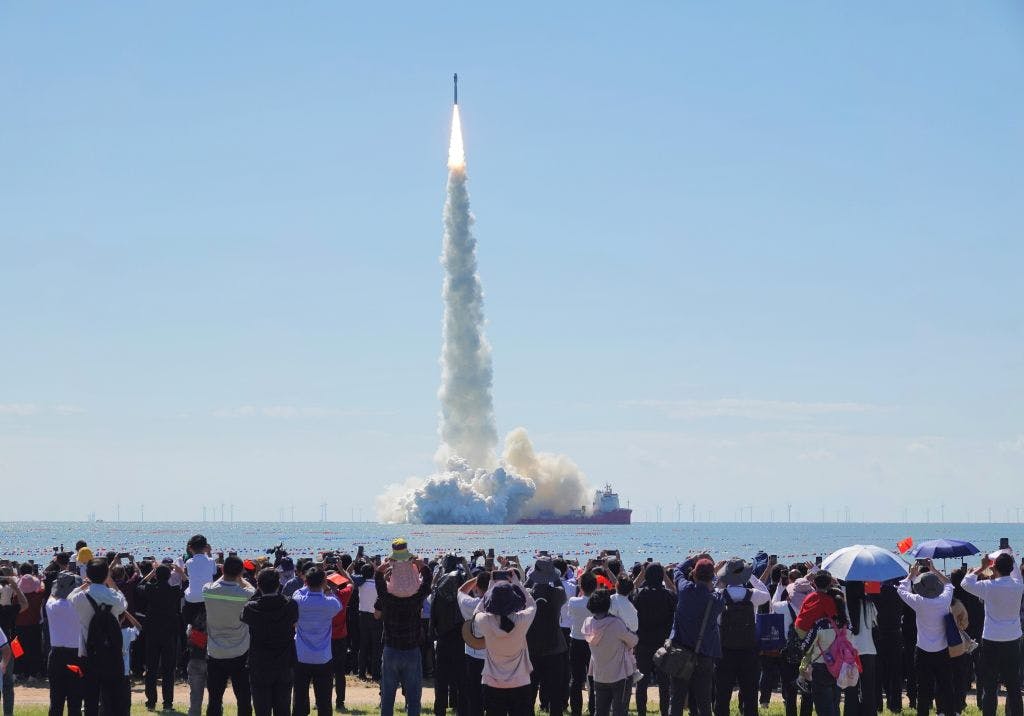Traders are enthusiastic about Chinese stocks. Their economy? Not so much.
Chinese stocks are surging, but the shares of US companies that sell things to China aren’t.
Stimulus announcements have spurred a rally in Mainland Chinese equities stronger than anything the S&P 500 has ever enjoyed.
One key question as traders continue to digest the implications of this policy shift in China: Is the skyrocketing stock market reflecting what’s about to happen to the economy or not?
So far, market internals are suggesting that the answer is “not.” At least, not enough that the spillovers will be a big positive for the companies that sell things to China.
A basket of stocks collected by Goldman Sachs of US companies that have significant sales exposure to China (excluding semiconductors) is outpacing global equities by about 2.2% since September 23, the day before the first round of policy announcements landed. That contrasts with a near 40% outperformance for the Xtrackers Harvest CSI 300 China A-Shares ETF, which tracks the Mainland China benchmark CSI 300 Index.
The view that this is more of a stock market story than an economic one is shared by many prominent China watchers.
“The pivot thus far is more beneficial for Chinese domestic equities than it is for real growth and commodity demand; officials have signaled new determination to boost equities, but not yet the follow-through on fiscal stimulus and property support necessary to rejuvenate activity,” writes Michael Hirson, head of China research at 22V Research.
To compare the stock market’s view to the bond market’s: the CSI 300 erased more than a year’s worth of losses before the Golden Week holiday started. But Chinese 30-year government bond yields — which incorporate the market’s long-term views on domestic growth and inflation outcomes — haven’t even made it back to where they were at the start of September.
“The implied equities put means investors have a (temporary) backstop after many years of suffering,” writes Shehzad Qazi, managing director at China Beige Book International. “But no, Dr. Xi did not wake up one morning and decide to reverse the past six years of tough medicine.”
Some of the US stocks that have benefitted the most from Chinese stimulus announcements are casino operators in the region like Wynn Resorts or Las Vegas Sands, up about 31% and 25%, respectively, since September 23. The outlook for such companies is much more tied to Chinese stock markets (and household wealth) than Chinese economic activity.
For macroeconomically-sensitive assets, it’s become more of a mixed bag.
“Copper and the Australian dollar appear to be listening to the Chinese stock market right now because both are being driven higher by a third variable (Chinese stimulus announcement effect and the Xi put in Chinese stocks),” writes Brent Donnelly, president of Spectra Markets, in an October 3 note. “But the stock market is a policy target, and copper is not, so there is no guarantee that once this announcement effect dissipates, Chinese stocks and copper won’t decouple.”
